This is the first of an occasional series focusing on the one hit wonders.
Or to put it another way: The one hit blunders: Acts that stormed the Billboard Hot 100 one time only, before being unfairly discarded by America.
Meaning: You in the States missed out on rich and diverse back catalogues.
First up:
Dexys Midnight Runners
The UK Chart Record:
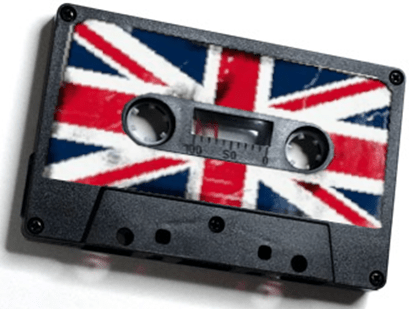
- Singles: 9 Top 40 including 4 Top 10 with two #1s.
- Albums: 6 studio albums: All Top 30 with 4 Top 10.
Dexys had the outside impression of a gang, more than a gang.
They were a way of life, a cause, a full time occupation with regimented hours of work.
Looks can deceive. There were a lot of people up there on stage. But if you looked closely, those people kept changing from single to single, let alone album to album.
Dexys was/is one man:

Kevin Rowland.
With a different right hand person each album and a revolving cast of many to bring his vision to fruition. The reality was more dictatorship than community.

Image was just as important to the cause. This never stood still either with four strictly enforced iterations.
The only common denominator – Kevin was in control.
The 1980’s debut album, Searching For The Young Soul Rebels, was recorded as an 8 piece.

Wearing a uniform described as “Mean Streets/On the Waterfront/New York Stevedore.”
It spawned their first UK #1 in “Geno”, detailing the inspiration of a teenage Kevin seeing Geno Washington live.
Shot though with passion, intensity and a dose of arrogance:
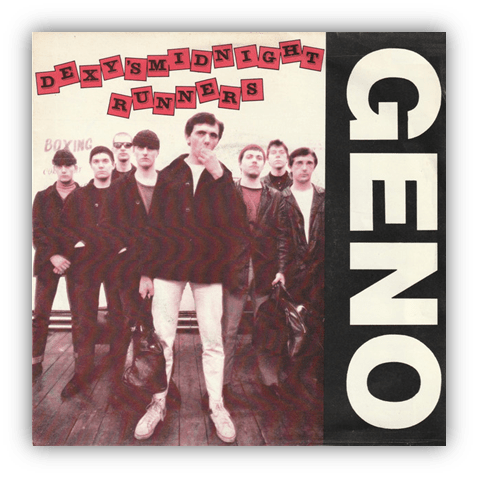
“But now just look at me as I’m looking down at you
No, I’m not bein’ flash, it’s what I’m built to do”
“Geno” is their career in musical microcosm.
Constant time changes, builds and releases of emotion, call and response vocals between leader and acolytes. Dexys evolved from punk but headed in their own direction, binding soul to new wave.
Setting themselves apart they included a brass section that was upfront on stage and on record.
Intensity would be a watch word for their career.
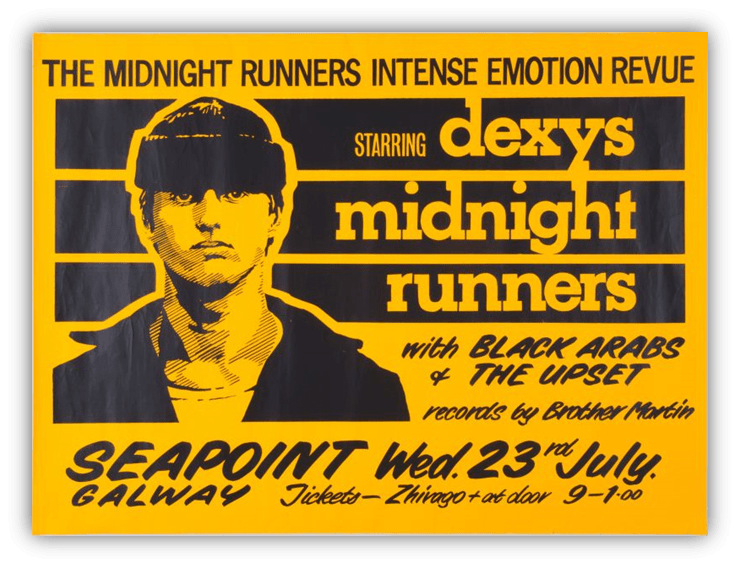
There were tours titled “The Projected Passion Revue” and “The Intense Emotion Review.” Lyrics ached and dripped with emotion.
“It’s the battle between the body and the soul. The spirit and what’s needed here.
“What I intend to do now is I’m going to punish my body.
“I’ll punish the body to believe in the soul”
On the surface, Dexys was a formidable unit. Feeling that interviews didn’t do them justice, they announced they would no longer give any.
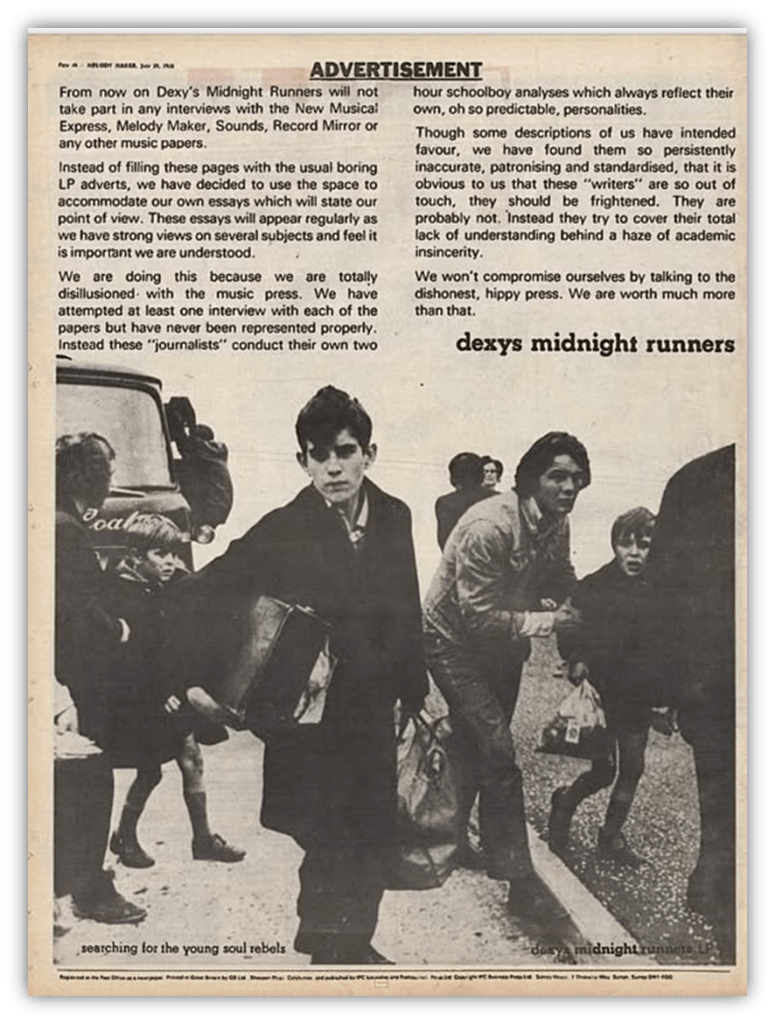
Opting instead for full page ads in the music press to declaim their manifesto.
As is often the way, they had signed a record deal that was weighted heavily in favour of the label. Dexys dealt with this at the end of recording ‘Searching for…’ by stealing the tapes and holding them ransom til the label met their demands.
It served to dispel the myth of the band as a collective. Only three members were actually signed to the label. The other five effectively hired hands. Tiring of this and being subject to Kevin’s demands they split.
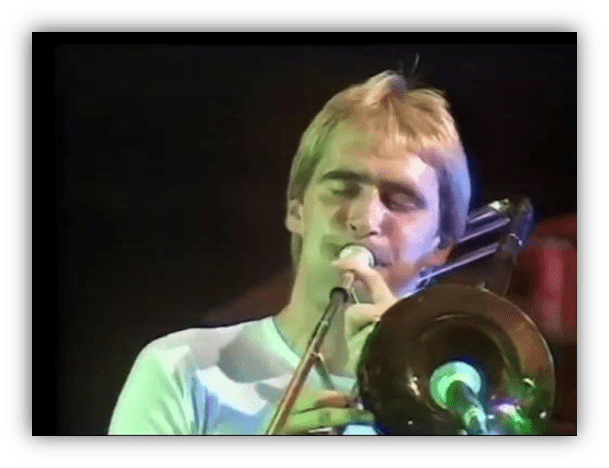
All but trombone player Big Jimmy Patterson left leaving Kevin with the name but no band.
The others formed The Bureau who had a hit single in Australia. But lack of label support led to them splitting after one album.
Kevin Archer had been the lieutenant to Kevin Rowland in that first iteration.
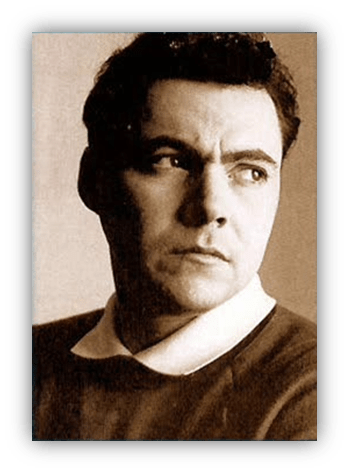
Except he wasn’t known as Kevin to the outside world, Rowland changed him to “Al” for the purposes of the band, to avoid any confusion.
After initially joining The Bureau he went his own way to form The Blue Ox Babes. Who would have a very important role in Dexys future.
Rowland meanwhile, formed a new Dexys. The image evolved, they were now clean living fitness fanatics wearing boxer boots, wrist and head-bands, plain white t-shirts and sweatpants. Ever changing, this line-up and look didn’t last long enough to record an album.
They were largely gone before their defining moment, 1982s Too-Rye-Ay and worldwide smash “Come On Eileen.”
There are conflicting accounts of where the inspiration came from for the next new direction that Too-Rye-Ay took.
What is beyond doubt is that Kevin Archer played Rowland a tape of The Blue Ox Babes demos.

Demos that melded Motown, soul and folk strings.
Rowland borrowed the tape saying he wanted to listen to it on a higher quality soundsystem to better gauge his opinion.
Archer would later recall hearing “Come On Eileen” on the radio and finding it a distillation of everything his band were doing. Seeing Dexys new image; the clothes even matched what he’d had in mind.
This ended any chance of success for The Blue Ox Babes.
Archer felt they would be left looking like the copyists rather than the progenitors. Later in the ’80s he reconvened his band, with two of the Too-Rye-Ay line up even joining the cause.

They secured a record deal but after a series of unsuccessful singles their debut album was shelved (it would finally get a release 21 years later) and the band ended.
Come the 90s, Rowland said that both bands had been experimenting with strings, but Archer was the one that had the breakthrough.
He admitted that he stole their sound, but made it clear there had been no stealing of songs. He arranged for Archer to receive half of his royalties for Too-Rye-Ay from then on. Reconciliation seemed complete but in 2006 Rowland switched the arrangement down to 5% for Archer before amending it to 10%.
It doesn’t end there. Rowland spotted Babes violinist Helen Bevington and took her for Dexys, too. Not that you’d realise from her name.
Rowland created their own fake authenticity to match the Irish folk influences. Rowland himself was 2nd generation Irish, so he was drawing on his own heritage. But to cement the image, new band members were renamed:

Helen Bevington became “Helen O’Hara.”

Steve Shaw became “Steve Brennan.”

Roger Huckle became “Roger MacDuff.”
Most out there was Mick Galic:

Which already sounds like it had the requisite character. He gained the Irish-Italian mix of “Giorgio Kilkenny.”
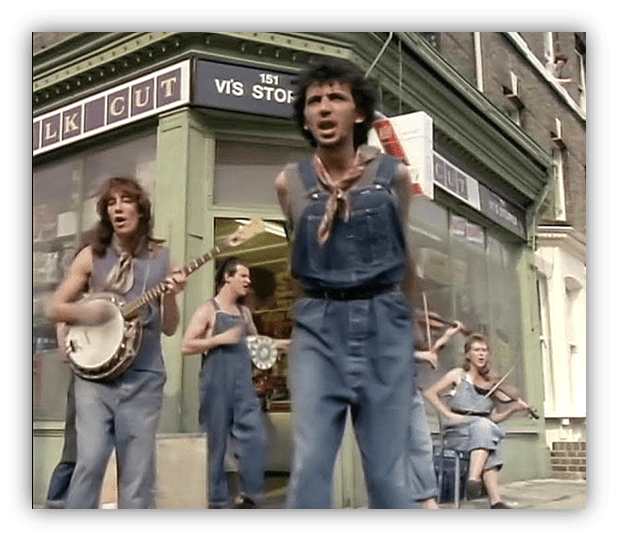
It was all topped off with the iconic denim dungarees and gypsy folk chic.
The switch in styles saw the arrival of a string section, named The Emerald Express, who took prominence over brass.
Initially Rowland had the crazy idea that the brass section could learn to play violins and cello. They gave it a go, but it was never going to work. It didn’t stop the pretence at live shows, with the reassigned brass section out front miming with their new instruments. While offstage, hired in-session musicians did the real work.
This was the end for Big Jimmy Patterson.

His loyalty in sticking with the band saw him elevated to co-writer for Too Rye-Ay.
As one of the brass section though: his days were numbered and he quit before its release.
Somehow, everything was in place for “Come On Eileen’s” world domnation.

US And UK #1. And the biggest selling UK single of 1982.
When I was a teenager in the ’90s, it felt that it had become something of a novelty.
An outlier that was like nothing else of its time. The distinctive sound and image which helped it stand out now worked against it as a crowd pleasing drunken singalong anthem. Separated completely from the passion and intensity of its creator.
At the peak of their fame, on promotion duties in the US, Rowland spotted the next move in a Brooks Brothers.
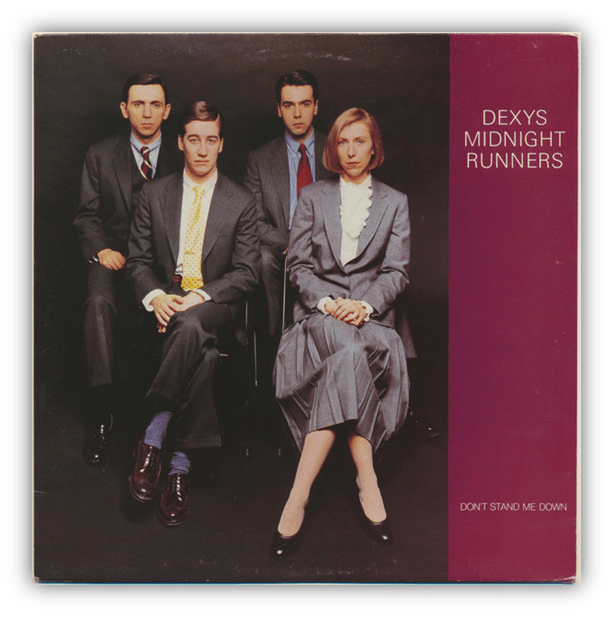
Don’t Stand Me Down would be released in 1985, the image now preppy Ivy League.
The album would finish Dexys.
The revolving door membership saw the band down to four official members with O’Hara and Billy Adams now the foil to Rowland. Sax player Nick Gatfield would appear on the album artwork, but in time honoured tradition, by the time of release he was gone.
Don’t Stand Me Down burnt through studio time, money, musicians and record company goodwill.

Recording started with a month in Switzerland which produced one backing track before moving onto London and New York.
When finally finished, the band refused to release a single believing that the album spoke for itself.
The album landed to bewilderment and disdain, and stiffed commercially.
I think it’s great. But it is not a work concerned with commerciality. Kevin Rowland may have been of the opinion it was a thing of such beauty and profundity that it would engage the masses.

But when your standout track is 12:30 long, starting with a conversation and meandering through numerous segments… that’s a tough sell.
Verse and chorus structure are largely missing. The only track that adheres to a traditional structure is the propulsive “Listen To This.”
There would be one last unlikely hit single; “Because Of You” in 1986.
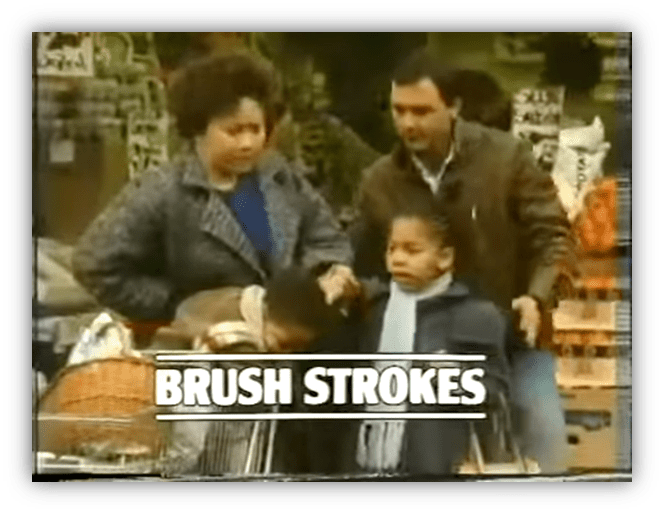
The theme song to BBC1 sitcom Brush Strokes.
I have no idea who thought Dexys and a sitcom were the right mix but it worked. By that point the band was Kevin Rowland plus session musicians.
It had been a tumultuous ride. Those three albums burn with an overbearing intensity.

For live shows the instruction was to play as hard as possible.
Broken strings, bleeding lips and exhaustion were required. I’ve seen comments from ex-members that having left the band they had to relearn how to play normally.
It’s apparent that Kevin Rowland was a control freak who demanded absolute loyalty and adherence to his ideas.
Driving many away and discarding others when they didn’t fit in to the vision.
After Dexys, he went through a long troubled period of addiction. A solo album in 1988 sank without trace. In 1998 a covers album; My Beauty, put him back in the spotlight.
As ever: New album, new image.

This time Kevin dressed in specially commissioned male lingerie, worn in videos, album artwork and onstage.
It overshadowed everything else, the reviews were derisive and scathing.
After everything, he came back.
He got clean and gained perspective on his past behaviour.
A 2002 Greatest Hits contained two new songs and eventually in 2012 a new studio album. There have been another two since.
The cast of many remains a feature, every new recording has a different line up. There has been room for reapproachment, with each album drawing on a number of previous members.
Big Jimmy Paterson has the honour of being the only person other than Rowland to play on every Dexys album, sometimes only one or two tracks.

Despite past differences, he’s always heeded the call when needed.
A book came out last year; Searching for Dexys Midnight Runners: The Last Gang in Town, in which music writer Nige Tassell attempted to track down every member of the band from the original 1978 to 1986 iterations.
One thing that comes across: Even if they were only there for a matter of months, and whatever the circumstances of their exit:

Playing in Dexys was for many an inspirational and unmissable experience.


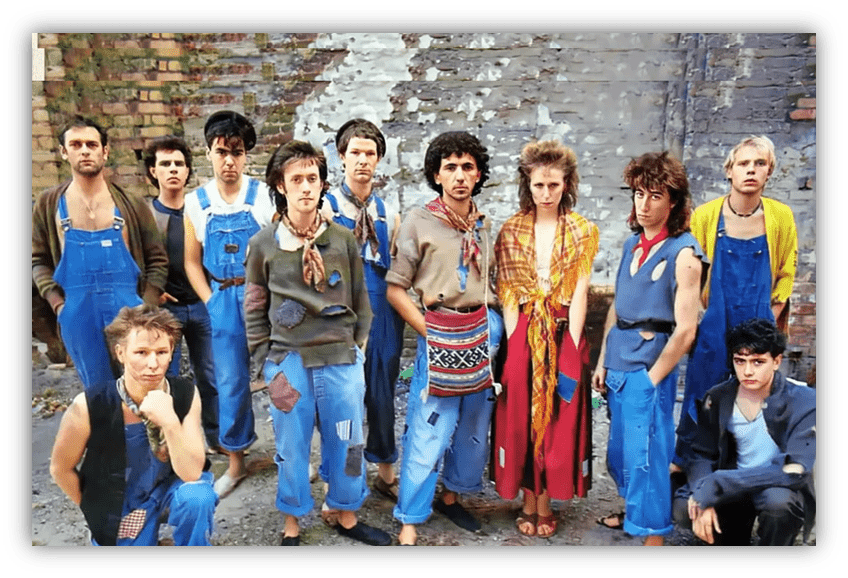
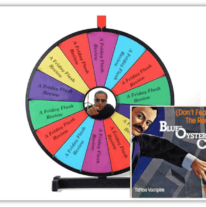

Great idea for a series, JJ! I’m looking forward to learning about what we missed over here.
I’m familiar with “Geno” and, of course, “Eileen,” but what little Dexy’s I’ve heard beyond that didn’t really catch my attention. It doesn’t help that Rowland seems thoroughly unpleasant, but I’ll give the playlist a listen. Thanks!
There’s no getting round the fact that Rowland wasn’t exactly a people person. He had something that inspired others despite his failings. I couldn’t say he’s a totally reformed figure, especially given how he reneged on the royalties with Al Archer but he does seem a much more rounded person now. Recognising that he didn’t treat others well. There has to be something right about him that has led past band members to come back into the fold and assist him since he started using the Dexys name again.
I forgot my coffee this morning, so my mind is running slow .
Who would be another example of someone who was in total, iron-fisted control of what appeared on the surface to be a “democratic ensemble?”
Does Nine Inch Nails qualify? Probably not because we all know it’s all and/or mostly Trent Reznor in the studio and an assembled band on the road. He does use some of the same players regularly but switches them out, too.
Talking Heads going by what the others have said about David Byrne since they split.
Whether Paul regarded Wings as a band or not, we all knew who was in charge.
Absolutely.
That Denny Seiwell was a tyrant.
Don Henley and Glenn Frey exercised that role together in the Eagles.
C’mon, Mr. Rowland. It’s not the same unless you add “Midnight Runners” to describe your revamped band. It did, however, inspire me to watch Porky’s for the first time. It’s better than I could’ve possibly ever imagined. It was during lockdown when I first learned about the comeback album One Day I’m Going to Soar. No Tower Records, no idea. During lockdown, I googled Kevin Rowland, which clued me into the Jools Holland appearance. I like how the composer of “Wrong Side of the Moon” says ah, sweetness during the fiddle intro. You don’t get the fiddle intro on some versions of Too-Rye-Aye, stateside anyway. I agree with everything you write about Dexy’s Midnight Runners, JJ.
Best Kevin Rowland tribute song?
The Rumble Strips’ “Oh, Creole” from their debut album Girls and Weather.
Thanks Cappie, i know you’ve commented on Dexys before so thought you might appreciate this.
I think there are slight variations on Too-Rye-Aye across formats, re-releases and territories. I hadn’t seen anything about its release but I saw there is now a version on Spotify titled Too-Rye-Aye (As It Should Have Sounded). I haven’t listened yet to know how different it sounds.
The reduction in name to simply Dexys can be confusing. To find One Day I’m Going To Soar and Let The Record Show on Spotify you have to search for Dexys. Though most recent album The Feminine Divine is available under both Dexys and Dexys Midnight Runners.